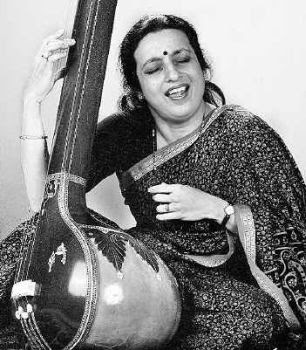
Legendary vocalist Pandit Bhimsen Joshi, who enthralled generations of connoisseurs with his renditions of Hindustani classical music, passed away at a city hospital today after a prolonged illness.
He was 89.
A recipient of Bharat Ratna, the highest civilian award, Pandit Bhimsen Joshi had been put on life support system following old age-related ailments leading to kidney and respiratory failure after his admission to hospital on December 31, his family said.
Pandit Bhimsen Joshi, the most-celebrated exponent of 'Kirana gharana' of Khansahib Abdul Karim Khan, leaves behind three sons and a daughter.
A pall of gloom descended on the city as the news of his demise spread with people making a beeline to his residence to pay their last respects to the singer who was the most powerful figure on the Hindustani music concert platform of 'khayal gayki'. Born on February 4, 1922 at Gadag in Dharwad district of Karnataka, Pandit Bhimsen Joshi got a boost to his career during a concert in Pune in January 1946 on the occasion of the 60th birthday of his guru Sawai Gandharva.
What distinguished him from the ordinary was his powerful voice, amazing breath control, fine musical sensibility and unwavering grasp of the fundamentals that made him the supreme Hindustani vocalist, representing a subtle fusion of intelligence and passion that imparted life and excitement to his music.
In the forays he made outside the classical fold, Pandit Bhimsen Joshi lent is voice as a "dhrupad" singer for a Bengali film based on the life of Tansen and later sang as a playback singer for Marathi film Gulacha Ganapati, produced and directed by celebrated Marathi humorist "Pu La" Deshpande in addition to Hindi movies Basant Bahar and Bhairavi.
But it was his 'Sant Vani' recitals, which bore the flair of Marathi 'Bhakti Sangeet' that added immensely to his popularity in both Maharashtra and Karnataka which have had a long succession of saint-poets.
He was honoured with the Padma Shri (1972), Sangeet Natak Akademi award for Hindustani vocal music (1975), Padma Bhushan (1985) and Madhya Pradesh government's "Tansen Samman" in 1992. Bharat Ratna was bestowed on him in 2008.
Pandit Bhimsen Joshi had undergone a surgery for removal of a brain tumor in 1999 followed by a cervical spine operation in 2005.
The maestro's last surprise public performance that regaled the audience was during 2007 'Sawai Gandharva' annual music festival which he himself had started to commemorate the memory of his guru. Pandit Bhimsen Joshi's body was taken to his residence where it would be kept for people to offer their last respects till this afternoon.
The final rites would be performed in the evening, family sources said.
Condoling the passing away of the maestro, President Pratibha Patil said, "In his death, the country has lost a greatest personality who was an exponent of vocal music."
CDS on Sale
PANDIT BHIMSEN JOSHI Golden Raaga Collection
BEST OF PANDIT BHIMSEN JOSHI: DEVOTIONAL SONGS
PANDIT BHIMSEN JOSHI Unsung Raaga Puriya

